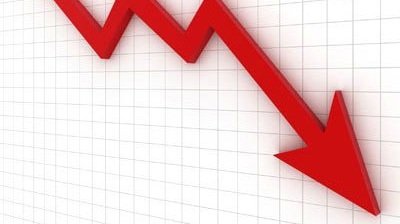The latest NZIER Quarterly Survey of Business shows business confidence is New Zealand is at a record 52 year low.
The survey was open from 28 November 2022 to 9 January 2023 and captured the effects of the more hawkish than-expected November Monetary Policy Statement on 23 November.
73 percent of businesses expect general economic conditions to deteriorate over the coming months – the weakest in the survey’s history.
It follows a similar result from last month’s ANZ Business Outlook Index in New Zealand, which fell to -70.2 in December 2022 from 57.1 in November, sinking to a new record low.
When it comes to activity in their own business, 13 percent of firms reported a decline in activity over the past quarter.
This was the weakest since June 2020 survey when the full impact of the first COVID-19 lockdown was captured.
Firms preparing for tough times ahead
The survey results show firms have become much more cautious and are now looking to reduce staff numbers and pare back on investment plans.
However, shortages of skilled and unskilled staff remain acute despite the decline in hiring, with finding labour remaining the top primary constraint for businesses.
That said, a growing proportion of firms are also starting to report sales as the primary constraint for their business, suggesting weakening demand is beginning to impact more businesses.
Despite a greater proportion of businesses passing higher costs on by increasing their prices, profitability has weakened. Nonetheless, the pick-up in costs and prices points to high inflation persisting into 2023.
Builders and retailers were the most downbeat
The mood was downbeat across the builders and retailers sector. The building sector was the most pessimistic of the sectors surveyed, with a net 77 percent of firms expecting worsening economic conditions over the coming months.
The decline in the sector’s new orders and output points to a softening in demand over the longer term.
While most building sector firms still reported intense cost pressures, the proportion of firms that increased prices continued to fall in the December quarter.
The pipeline of housing and commercial construction for the coming year continues to decline.
These results suggest construction activity, especially residential construction, will start to ease over the second half of 2023.
The retail sector is also feeling very downbeat.
A net 76 percent of retailers are expecting a deterioration in economic conditions over the coming months.
The weaker demand is limiting the ability of retailers to increase prices in the face of intense cost pressures, which has reduced profitability in the retail sector.
With almost half of mortgages due for repricing over the coming year, many of those mortgages will be rolling off historically low fixed-term mortgage rates of around 2 to 3 percent onto significantly higher rates of 6 to 7 percent. Consequently, substantially higher mortgage repayments should drive a slowing in retail spending over the coming year.
In a statement sent to media, National’s Finance spokesperson Nicola Willis said “the Government’s failure to rein in spending and address labour shortages mean Kiwis are being slammed by rapidly rising interest rates. It’s no surprise that the cost of that failure has left businesses feeling gloomy.”
“Businesses have been slammed by cost pressures and labour shortages for more than a year. It’s well past time for the Government to present a real economic plan. But instead of presenting a plan, Labour has been distracted by failed pet-projects like the TVNZ-RNZ merger and Three Waters.








